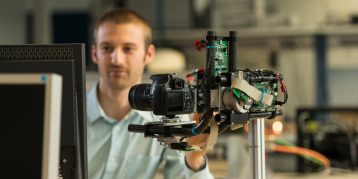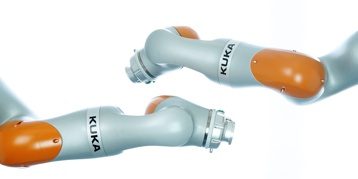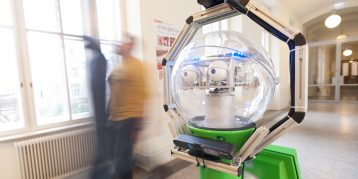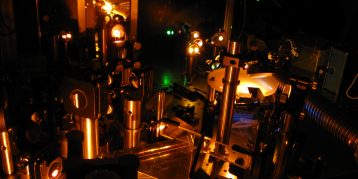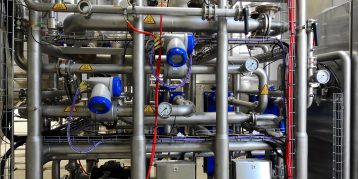Komplexe Dynamische Systeme (CDS)
Die Forschungsgruppe für Komplexe Dynamische Systeme beschäftigt sich mit der Modellierung, Simulation, Analyse, Optimierung, Steuerung und Regelung komplexer dynamischer Systeme sowie der Bildverarbeitung, Multisensorfusion und kognitiven Robotik. Die Ziele unserer Forschung sind Verbesserungen des Systemverhaltens hinsichtlich der dynamischen Eigenschaften, der Genauigkeit, der Robustheit, der Zuverlässigkeit und der Flexibilität sowie eine Erhöhung der Produktivität und Ressourceneffizienz (Energie- und Rohstoffeinsatz) bei gleichzeitiger Minimierung der Systemkosten.
Darüber hinaus werden Methoden und Algorithmen entwickelt, die den Systemen ein gewisses Maß an kognitiven Fähigkeiten verleihen. Ein spezieller Fokus liegt dabei in der Bildverarbeitung und Sensorfusion zur Wahrnehmung von Strukturen und Objekten, so dass Roboter und Maschinen in einem gewissen Rahmen selbstständig handeln und daraus lernen können. Dies ebnet den Weg zur hochflexiblen automatisierten Fertigung mit dem Roboter als intelligentes Werkzeug und zu neuen Servicerobotern in unterschiedlichsten Bereichen des Lebens. Unsere Kompetenz liegt dabei auf den Gebieten sichere Navigation, 2D und 3D Aufmerksamkeitsmethoden, Objektmodellierung, Erkennung von Objektklassen, Affordanz-basiertes Greifen, dynamische kollisionsfreie echtzeitfähige Bahnplanung, Systemoptimierung, adaptive Steuerung und lernende Regelung.
Unsere Forschungsaktivitäten sind generell darauf fokussiert, dass im Gegensatz zur bloßen Aneinanderreihung von optimierten Teilsystemen der Entwurf eines komplexen dynamischen Gesamtsystems ein durchgängiges Denken in Systemen erfordert. Daher sind eine systematische Analyse und ein umfassendes Verständnis der Wechselwirkungen von der Konstruktion über die Aktorik und Sensorik bis hin zur informations- und automatisierungstechnischen Umsetzung unter Berücksichtigung der Möglichkeiten moderner adaptiver lernender Verfahren integraler Bestandteil unserer Forschungsaktivitäten. Wir konzentrieren uns dabei auf eine systematische physikalisch-basierte Modellierung und nutzen die Modellinformation gemeinsam mit geeigneten datenbasierten Ansätzen im Rahmen der Systemanalyse und des Systementwurfes. Darüber hinaus spielt die Erfüllung von harten Echtzeitanforderungen und Fragen der Robustheit und Zuverlässigkeit im Rahmen unserer Forschungsaktivitäten eine wesentliche Rolle.
